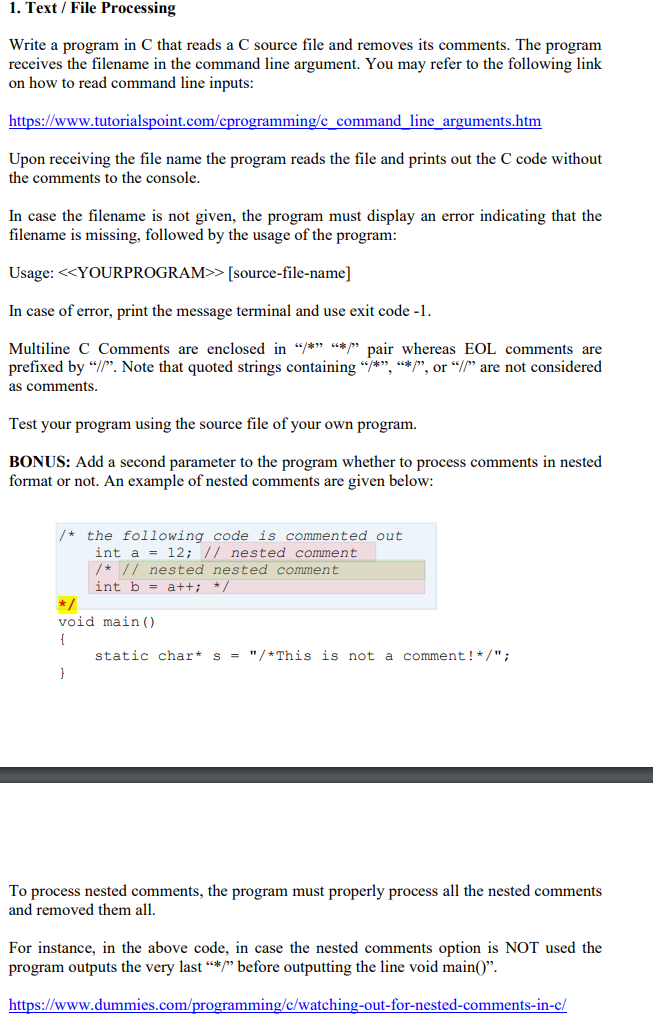

* Get each line until there are none left */ The function stops reading text from the stream when either n - 1 characters are read, the newline character ( '\n') is read or the end of file (EOF) is reached. This function reads a line from a stream and stores it in a specified string. The stdio.h header defines the fgets() function. Literals for numbers, characters and strings.Iteration Statements/Loops: for, while, do-while.Common C programming idioms and developer practices.- character classification & conversion.When you open the file, you can see the integer you entered.Įxample 2: Read from a text file #include This program takes a number from the user and stores in the file program.txt.Īfter you compile and run this program, you can see a text file program.txt created in C drive of your computer. use appropriate location if you are using MacOS or Linux The only difference is that fprintf() and fscanf() expects a pointer to the structure FILE.Įxample 1: Write to a text file #include They are just the file versions of printf() and scanf(). Here, fptr is a file pointer associated with the file to be closed.įor reading and writing to a text file, we use the functions fprintf() and fscanf(). The file (both text and binary) should be closed after reading/writing.Ĭlosing a file is performed using the fclose() function. Open for both reading and appending in binary mode. Open for both reading and writing in binary mode. If the file does not exist, it will be created. If the file exists, its contents are overwritten. If the file does not exist, fopen() returns NULL. The reading mode only allows you to read the file, you cannot write into the file. The second function opens the existing file for reading in binary mode 'rb'. Now let's suppose the second binary file oldprogram.bin exists in the location E:\cprogram.The writing mode allows you to create and edit (overwrite) the contents of the file. The first function creates a new file named newprogram.txt and opens it for writing as per the mode 'w'. Let's suppose the file newprogram.txt doesn't exist in the location E:\cprogram.The syntax for opening a file in standard I/O is: ptr = fopen("fileopen","mode") įopen("E:\\cprogram\\oldprogram.bin","rb") Opening a file is performed using the fopen() function defined in the stdio.h header file. This declaration is needed for communication between the file and the program. When working with files, you need to declare a pointer of type file. Reading from and writing information to a file.In C, you can perform four major operations on files, either text or binary: They can hold a higher amount of data, are not readable easily, and provides better security than text files. Instead of storing data in plain text, they store it in the binary form (0's and 1's). They take minimum effort to maintain, are easily readable, and provide the least security and takes bigger storage space. You can easily edit or delete the contents. When you open those files, you'll see all the contents within the file as plain text. You can easily create text files using any simple text editors such as Notepad. When dealing with files, there are two types of files you should know about: You can easily move your data from one computer to another without any changes.However, if you have a file containing all the data, you can easily access the contents of the file using a few commands in C. If you have to enter a large number of data, it will take a lot of time to enter them all.Storing in a file will preserve your data even if the program terminates.


When a program is terminated, the entire data is lost.A file is a container in computer storage devices used for storing data.


 0 kommentar(er)
0 kommentar(er)
